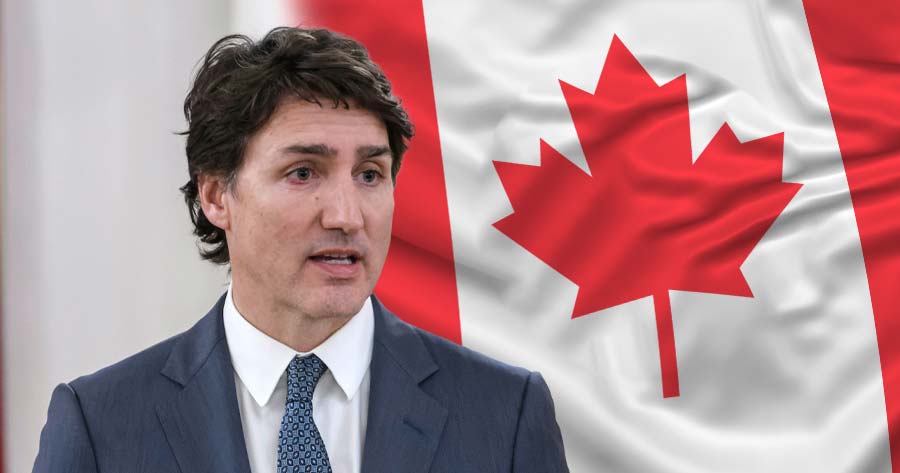Canadian Prime Minister Justin Trudeau announced his resignation, a decision influenced by Deputy Prime Minister Chrystia Freeland stepping down from her role, according to Trudeau. This political shift comes amid Canada’s strategy to introduce stringent security protocols along its border with the United States due to escalating threats.
In the political arena, the Conservative Party continues to lead by a wide margin over the Liberals, maintaining a robust advantage in opinion polls for several months. This strong Conservative standing suggests a potential Liberal defeat if elections were held at present.
Adding to the international discourse, former U.S. President Donald Trump claimed on social media that tariff pressures were instrumental in Trudeau’s departure. He also reiterated his controversial remark suggesting Canada should join the United States as its “51st State.”
“If Canada merged with the U.S., there would be no Tariffs, taxes would go way down, and they would be TOTALLY SECURE from the threat of the Russian and Chinese Ships that are constantly surrounding them,” he wrote.
With Trudeau’s exit, the Liberal Party is now tasked with selecting a new leader to guide them through the next general election, which is legally required to occur by October 20.
Trudeau was once seen as a promising leader with a progressive agenda focused on women’s rights and climate change. This also followed his successful effort to revive the Liberal Party, which he had taken over in 2013 when it was in decline.
However, he has faced growing pressure to step down since December, following his attempt to demote Finance Minister Chrystia Freeland, a close cabinet ally, after she opposed his proposals for increased spending. Freeland responded by resigning and accusing him of engaging in “political gimmicks.”
Furthermore, his leadership has also been criticized over the massive influx of immigrants, which strained an overheated housing market, and the soaring prices that persisted despite heavy government spending to protect consumers and businesses.
Additionally, there could be calls for a quick election to establish a stable government capable of managing relations with President-elect Donald Trump’s administration over the next four years. Trudeau has reportedly discussed with Finance Minister Dominic LeBlanc the possibility of him serving as interim leader and prime minister; however, a source noted this might be unworkable.





